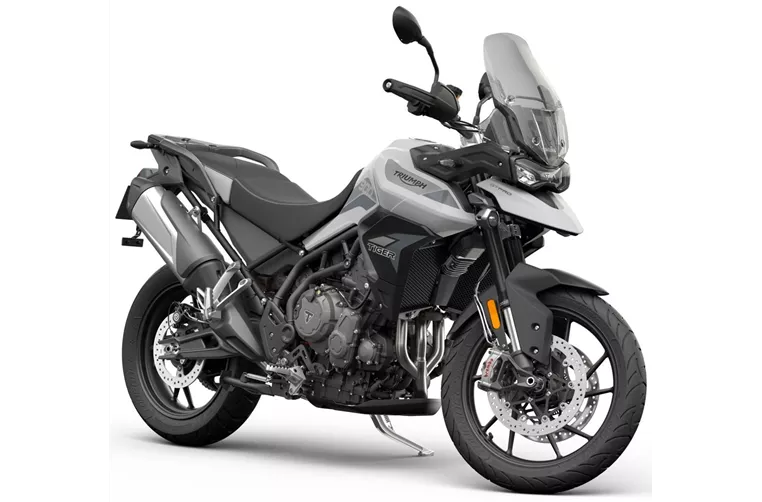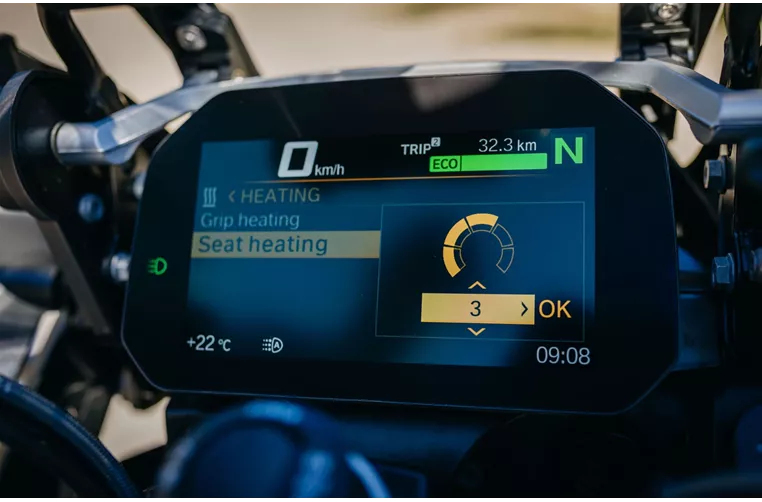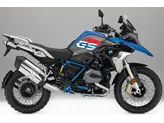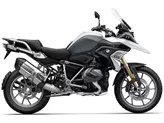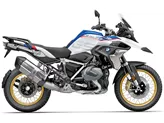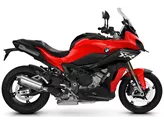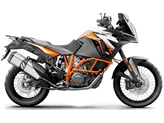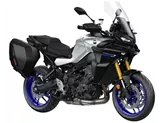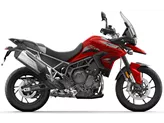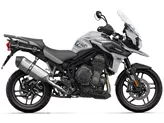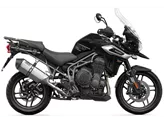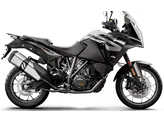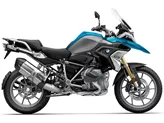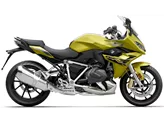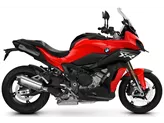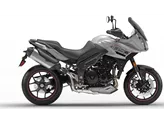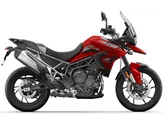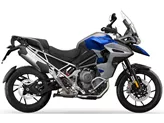Triumph Tiger 900 GT Pro 2021 vs. BMW R 1250 GS 2021
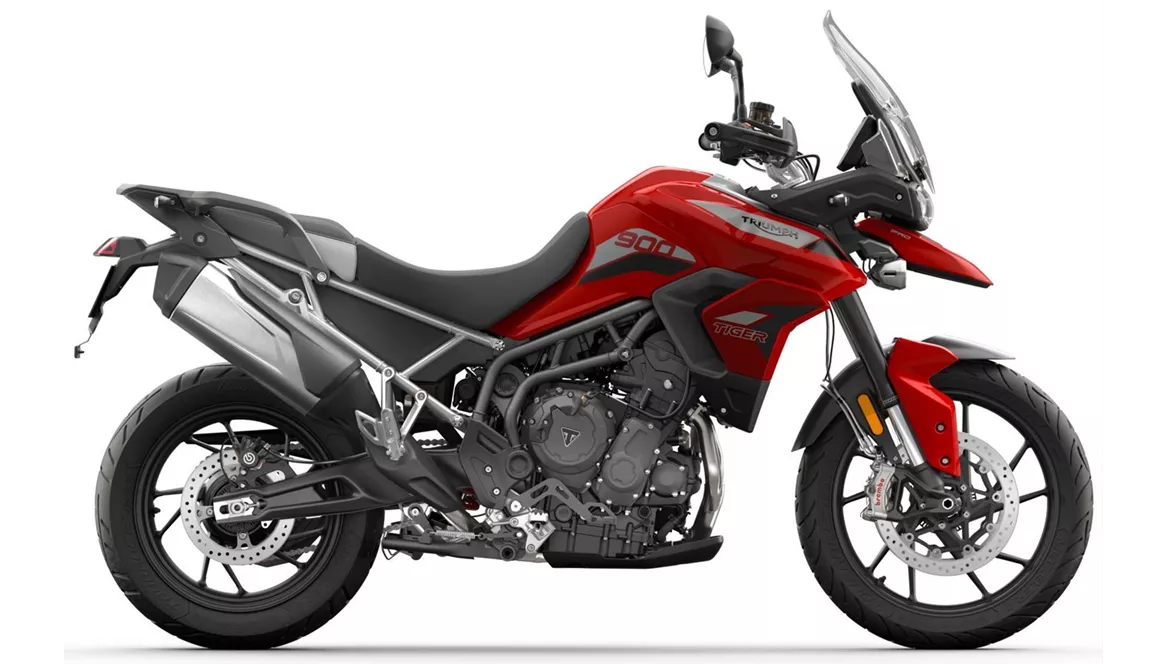
Triumph Tiger 900 GT Pro 2021
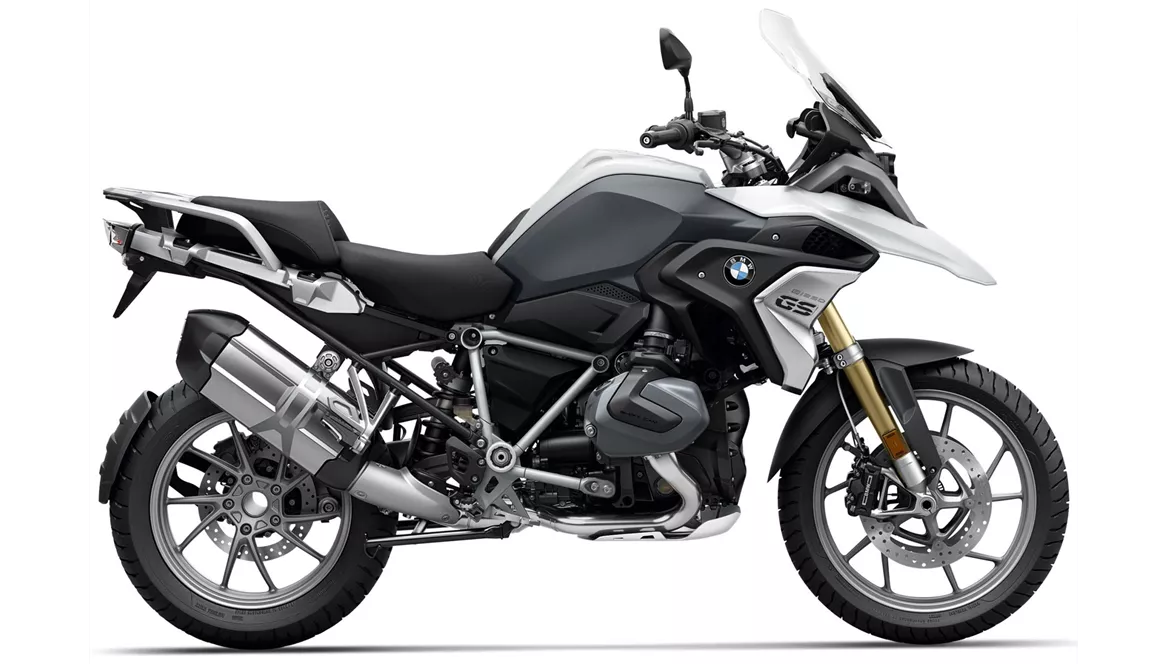
BMW R 1250 GS 2021
Overview - Triumph Tiger 900 GT Pro 2021 vs BMW R 1250 GS 2021
The Triumph Tiger 900 GT Pro 2021 and the BMW R 1250 GS 2021 are both enduro motorcycles that offer impressive performance and a range of features.
Starting with the engine and drive train, the Tiger 900 GT Pro is equipped with an in-line, 3-cylinder engine with a displacement of 888cc. It delivers 95.2 horsepower and 87 Nm of torque. The BMW R 1250 GS, on the other hand, features a boxer engine with a displacement of 1254cc. It produces a more powerful 136 horsepower and 143 Nm of torque. Both bikes have electric starters and offer smooth and efficient transmission systems, with the Tiger 900 GT Pro utilizing a chain drive and the R 1250 GS using a prop shaft.
In terms of suspension, the Tiger 900 GT Pro comes with an upside-down telescopic fork in the front with a diameter of 45mm and 180mm of travel. The rear suspension consists of a swing arm with a monoshock and 170mm of travel. The BMW R 1250 GS features a telelever front suspension with a diameter of 37mm and 190mm of travel, while the rear suspension consists of a single swing arm with a monoshock and 200mm of travel. Both bikes offer adjustable suspension settings for preload, rebound, and compression.
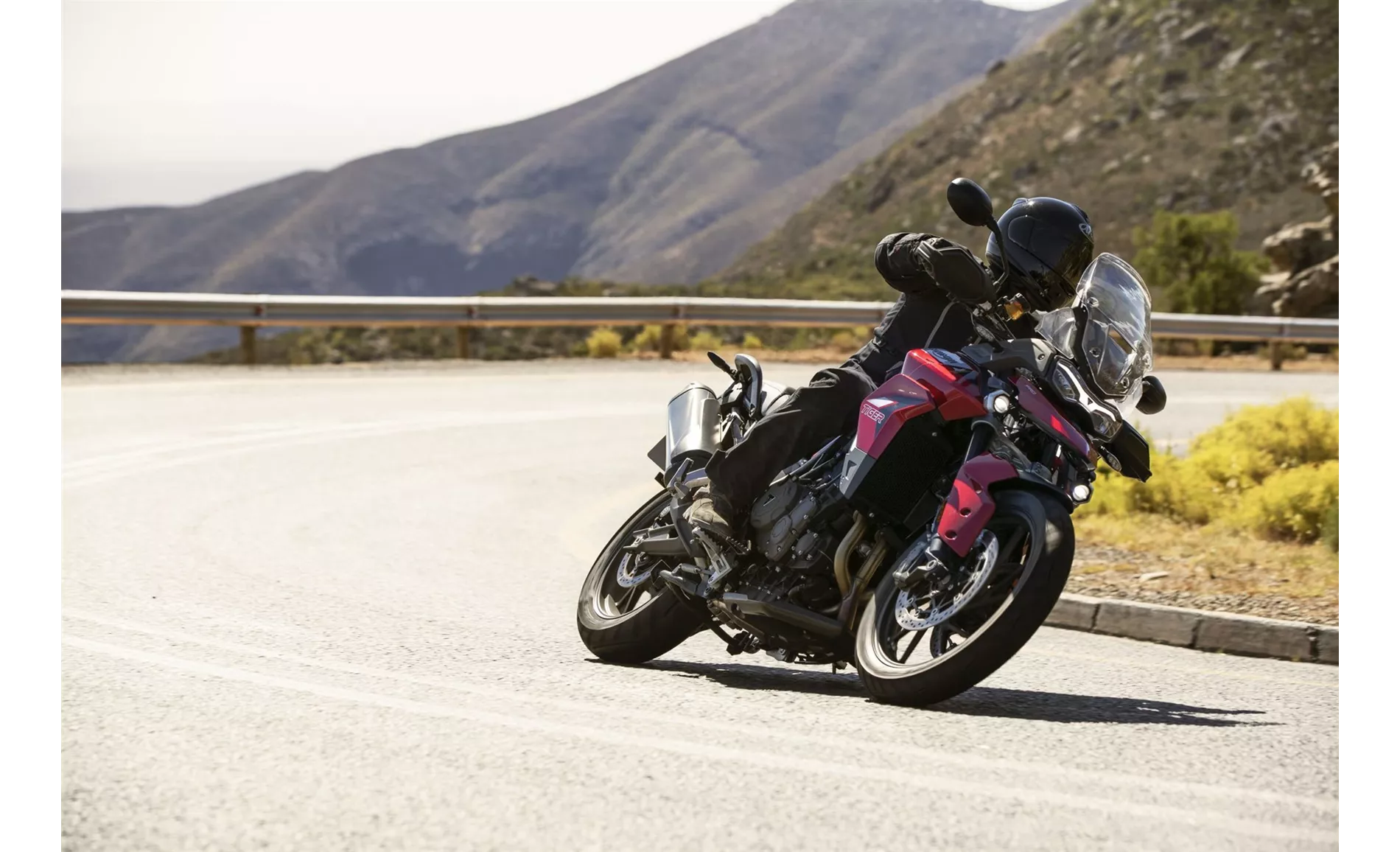
Triumph Tiger 900 GT Pro 2021
In terms of chassis, both motorcycles have steel frames, with the Tiger 900 GT Pro having a tubular frame and the R 1250 GS featuring a load-bearing engine frame. The Tiger 900 GT Pro has a rake of 65.4 degrees and a trail of 133.3mm, while the R 1250 GS has a rake of 62.9 degrees and a trail of 109mm.
When it comes to braking, both bikes are equipped with double disc brakes in the front. The Tiger 900 GT Pro features advanced rider assistance systems such as electronically adjustable suspension, riding modes, cornering ABS, ride by wire, and traction control. The R 1250 GS also offers ABS, anti-slipping control, hill start assist, riding modes, cornering ABS, ride by wire, and traction control.
In terms of dimensions and weights, both motorcycles have a front tire diameter of 19 inches and a rear tire diameter of 17 inches. The Tiger 900 GT Pro has a rear tire width of 150mm, while the R 1250 GS has a rear tire width of 170mm. The wheelbase of the Tiger 900 GT Pro is 1556mm, while the R 1250 GS has a wheelbase of 1525mm. The seat height of the Tiger 900 GT Pro is adjustable from 810mm to 830mm, while the R 1250 GS has a seat height of 850mm, adjustable up to 870mm. Both motorcycles have a fuel tank capacity of 20 liters.
In terms of equipment, both bikes offer LED headlights, with the Tiger 900 GT Pro also featuring LED daytime running lights and a heated seat. The R 1250 GS comes with cornering lights and an adjustable windscreen. The Tiger 900 GT Pro has a TFT display, while the R 1250 GS has an easy-to-read display and a great connectivity app.
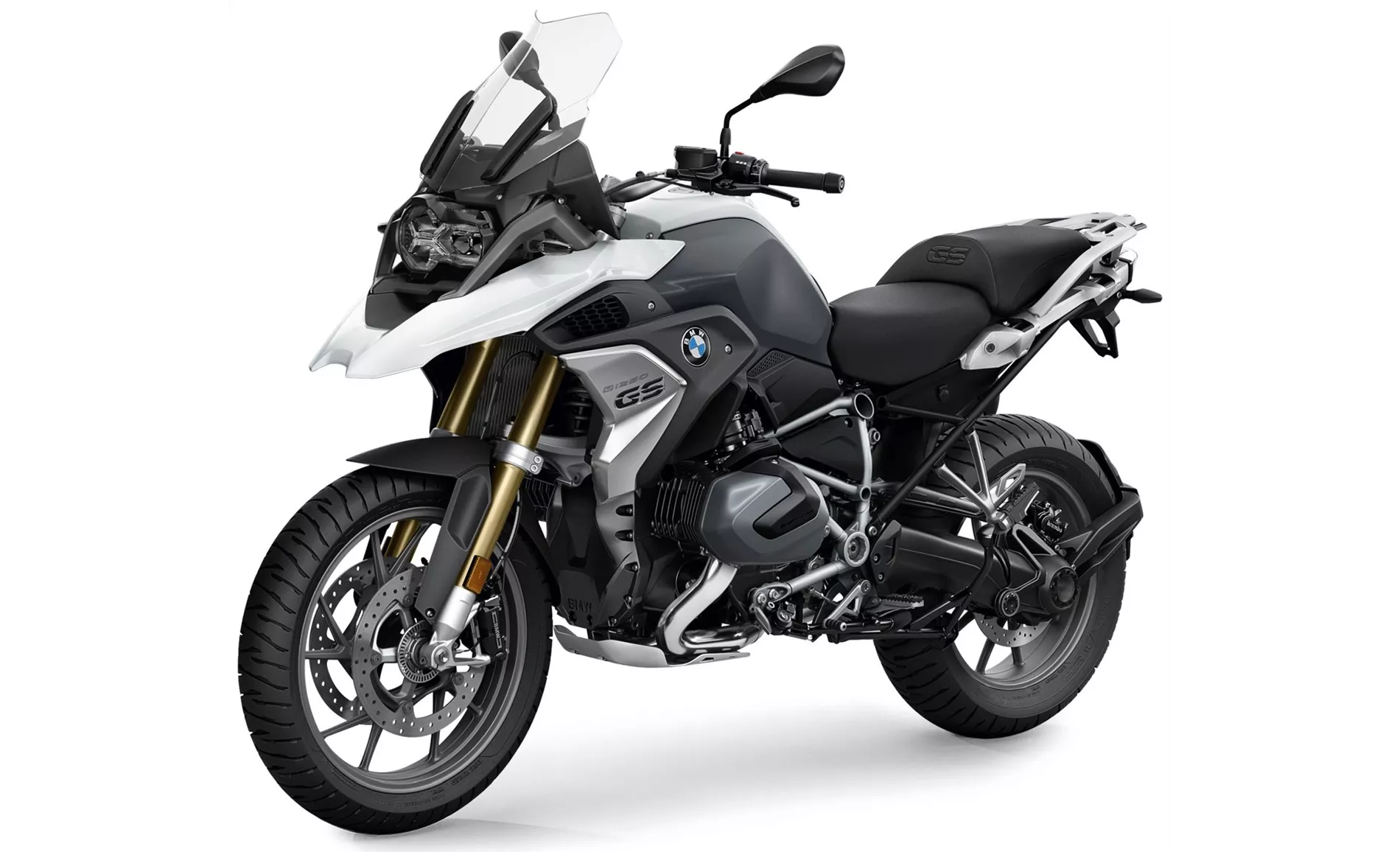
BMW R 1250 GS 2021
In terms of strengths, the Tiger 900 GT Pro is praised for its accessible and superior engine, comfortable ergonomics, extensive electronics package, good wind protection, and comfort for pillion riders. It also features a top quickshifter. The R 1250 GS is praised for its great ride comfort, great ergonomics, powerful engine, great connectivity app, easy-to-read display, confident feel in the saddle, practical riding aids, and versatile chassis.
However, the Tiger 900 GT Pro has some weaknesses, including a chassis that may be too soft for sporty riders and slight engine vibrations noticeable on the motorway. The R 1250 GS has a rough overall appearance and gearshifts at low revs can be somewhat clumsy.
Overall, both the Triumph Tiger 900 GT Pro 2021 and the BMW R 1250 GS 2021 are impressive enduro motorcycles with their own strengths and weaknesses. The choice between the two will ultimately depend on the rider's preferences and priorities.
Technical Specifications Triumph Tiger 900 GT Pro 2021 compared to BMW R 1250 GS 2021
Pros and Cons in comparison
Pros and Cons in comparison
Triumph Tiger 900 GT Pro 2021
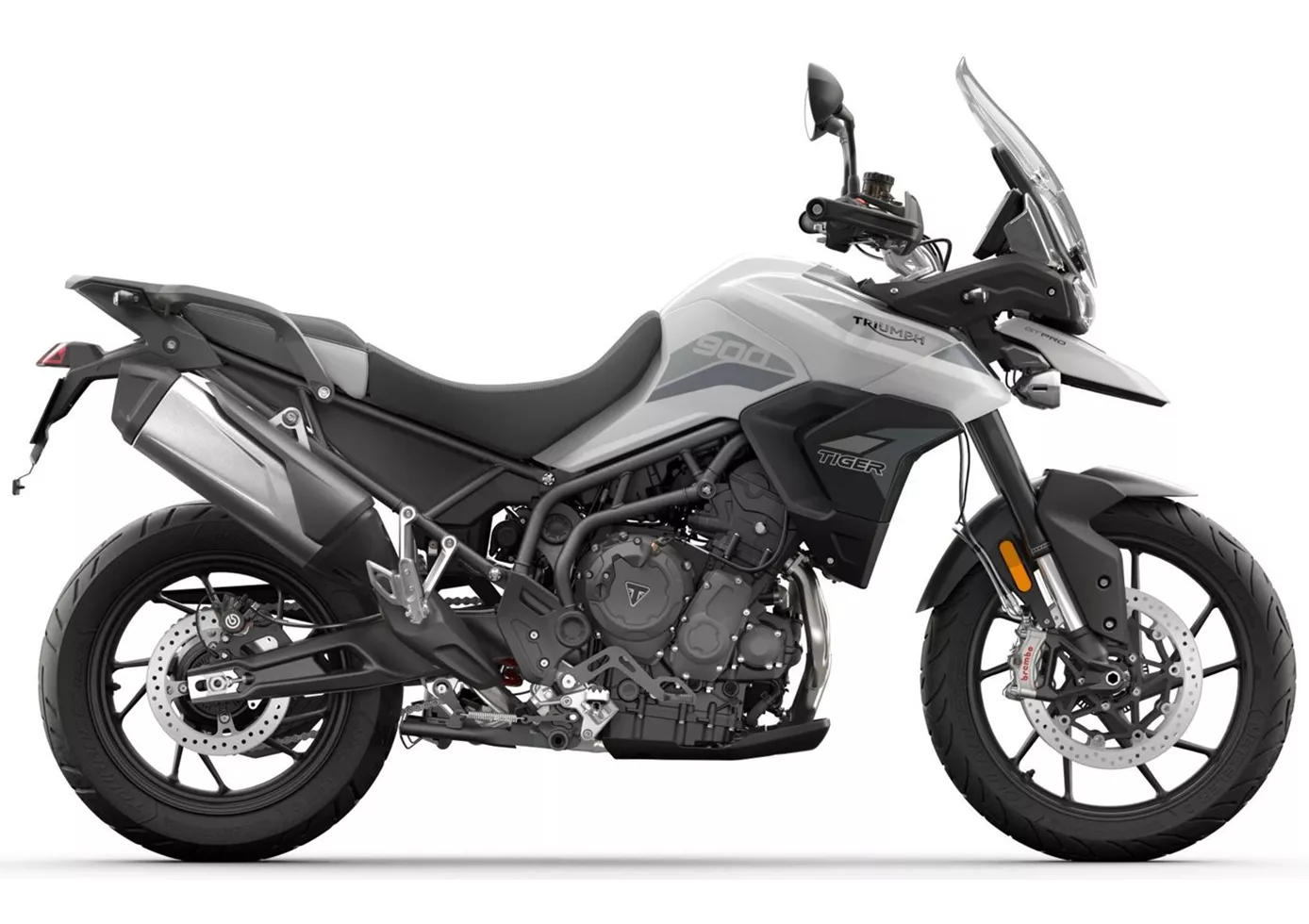
The Triumph Tiger 900 GT Pro is a very good touring bike, as long as you are not in a hurry. It has plenty of equipment, every conceivable electronic feature, extremely pleasant ergonomics and a well-balanced, easy-care three-cylinder engine. At the same time, it is oriented towards comfort across the board. Others are better at racing around corners, but the British lady prefers to cruise in a relaxed manner. Why overuse the soft chassis when you can instead enjoy the top wind protection and inhale the landscape around you.
BMW R 1250 GS 2021
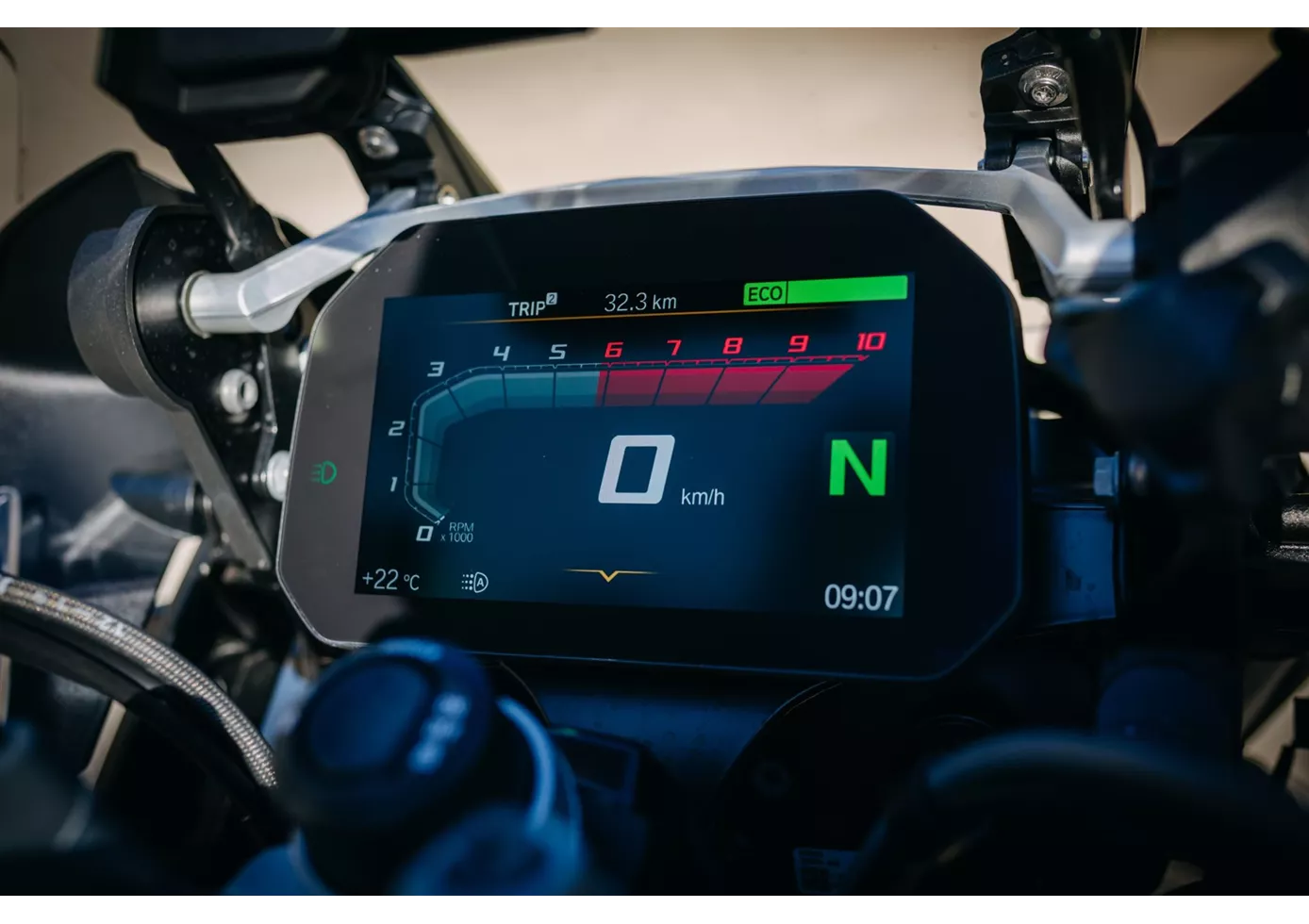
The GS also impressed us with its versatility during the test in November 2021. We rode the bike on a wide variety of terrain and were once again very satisfied. The motorbike convinces in every situation with its easy handling and practicality. On the other hand, it can also be ridden delightfully irrationally.
Price Comparison Avarage Market Price Triumph Tiger 900 GT Pro vs BMW R 1250 GS
There are a few key differences between a Triumph Tiger 900 GT Pro 2021 and a BMW R 1250 GS 2021. In terms of price, the actual average price of a BMW R 1250 GS 2021 is about 46% higher. A Triumph Tiger 900 GT Pro 2021 experiences a loss of 170 USD in one year and 330 USD in two years of ownership. This is offset by a loss of 350 USD and 290 USD for a BMW R 1250 GS 2021. Compared to BMW R 1250 GS 2021 there are less Triumph Tiger 900 GT Pro 2021 bikes available on the 1000PS.de Marketplace, specifically 9 compared to 66. It takes less time to sell a BMW R 1250 GS with 55 days compared to 109 days for the Triumph Tiger 900 GT Pro. Since model year 2020 1000PS.de editors have written 10 reviews for the Triumph Tiger 900 GT Pro and 50 reviews for the BMW R 1250 GS since model year 2019. The first review for the Triumph Tiger 900 GT Pro was published on 12/3/2019 and now has more than 65,300 views. This compares to more than 305,600 views for the first review on BMW R 1250 GS published on 9/19/2018.
